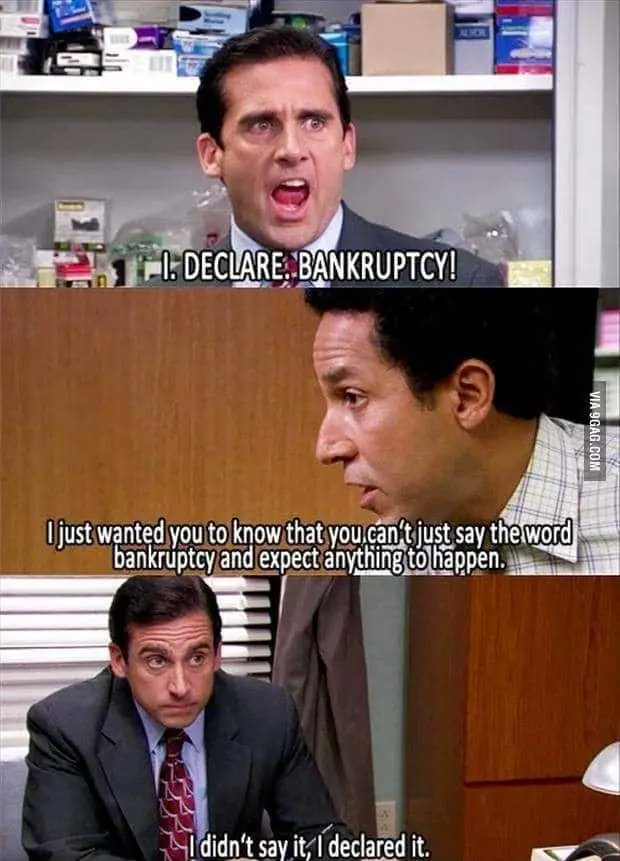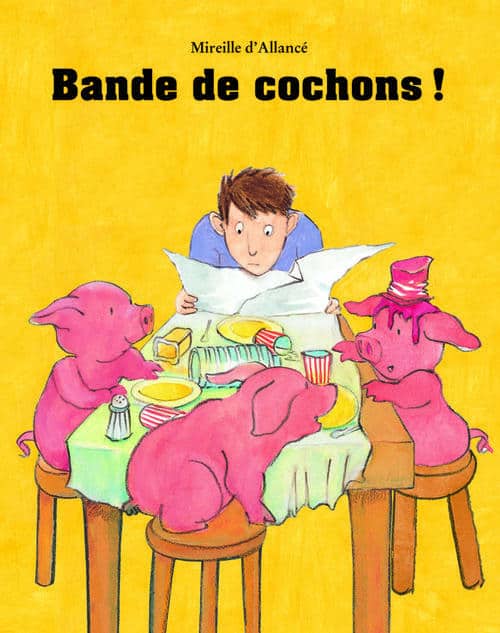In The Office skit below, Michael Scott is attempting to imitate a Southern American accent for a game. He tries to sound Southern by saying “I do declare” at the end of each sentence.
As Michael Scott is using it, “I do declare” is an exclamatory embellishment rather than an illocutionary act. The character of Ryan Howard points out that Michael doesn’t need to say “I do declare” at the end of every sentence because any time he says something it means he’s declaring it. The words are comically redundant.
An illocutionary act is terminology from the field of linguistics (pragmatics) and describes words which perform some sort of act in themselves.
How do you perform the act of firing someone? By saying, “You’re fired!”
How do you marry a couple? By saying, “I pronounce you husband and husband” or “wife and wife”.
How do you promise something? By saying, “I promise.”
In these situations, to say is to do. In order to work with illocutionary force, words must be explicit, understood by all, and said in a relevant context. Saying “You’re fired!” has no illocutionary force if the person saying it is not the addressee’s employer or if it’s said as part of a game.
The writers of The Office invert the gag in a different skit, in which Michael Scott thinks ‘declaring’ bankruptcy is an illocutionary act when it is not. At least, not when you say it in the context of complaining at work about your personal finances.

Humour from The Office shows that we all have an intuitive understanding of an illocutionary act, even if we don’t know what that act is called in the field of pragmatics. Writers of The Office created comedy from Michael Scott’s misunderstanding of what we all know to be true about how language works in practice.
The writers of American sitcom Modern Family also created an illocutionary act gag when Phil Dunphy married Luke and Manny by explaining to them both how to officiate at a wedding.
The term illoucationary act was introduced into linguistics by John Austin. In 1962 he published a book called How To Do Things With Words. A different John (John Searle) later built on Austin’s concept. For John Searle, ‘illocutionary act’ is synonymous with ‘speech act’. Frankly, ‘speech act’ is easier to remember.
But the concept is a necessary and useful one, not just in storytelling and in humour writing but in daily life. If we have the name to describe illocutionary acts when we hear them, we are in a stronger position to see hate speech for what it is. Hate speech can guise itself as smalltalk and humour among friends and acquaintances.
Hate speech is an illocutionary act because the act of saying something can incite hatred.
THE ILLOCUATIONARY ACTS OF IDENTITY
The same applies to other gender and sexuality identities.
THE ILLOCUTIONARY ACTS OF WAR
Fast forward to 2022, and many people are wondering why a no-fly zone cannot be declared over Ukraine to assist in the resistance against Russian oligarchs. To declare a no-fly zone is an illocutionary act with one of the most dire consequences, precisely because the declaration itself does nothing. A declaration of ‘no-fly’ does not set up a force-field, or a Stephen King dome, in which Russia is now unable to fly over Ukraine to drop missiles from the air. Declaration of a no-fly zone means that once the declaration is flouted, the world is officially at war.
MAGIC WORDS AS ILLOCUTIONARY ACTS
In fantasy, Abracadabra (and various equivalents) serve as illocutionary acts. Saying them makes something happen.

Today, Papa has decided to say plainly what he thinks: that his children are pigs, that the neighbor is an old goat … And immediately, all turn into animals!
TERM FROM THE SAME FAMILY
PERLOCUTIONARY ACT: (of a speech act) producing an effect upon the listener, as in persuading, frightening, amusing, or causing the listener to act.
Austin distinguished the act performed in saying certain words (the ‘illocutionary’ act) from the later effects achieved by saying them, (the ‘perlocutionary’ act).
These categories are not entirely distinct from one another. A word like ‘promote’ can be both illocutionary and perlocutionary.
‘Promote’ is a verb that straddles both sides of Austin’s distinction. The word has a perlocutionary, causal sense, and an illocutionary, constitutive sense. When smoking promotes cancer, it causes it. When tobacco companies promote smoking, they advocate it. By advocating smoking, they also cause it, since their advocacy brings about an effect, namely that people smoke. So hate speech ‘promotes’ hatred in both illocutionary and perlocutionary ways: it advocates and causes hatred.
Beyond Belief: Pragmatics in Hate Speech and P*rnography
It’s equally important to understand a perlocutionary speech act because some individuals will try to wriggle out of damaging speech by arguing that they are not ‘actually telling someone to shoot someone else’, yet their words are achieving ‘later effects’.
THE FALSE BINARY BETWEEN SPEECH AND ACTION
MacKinnon argued, p*rnography doesn’t merely express the view that women are to be subordinated — it is not ‘only words’. By training our attention on p*rn and its worldly effects, we can come to see it as an act of subordination, whose function is to enforce the second-class status of all women in relation to men. The very fact that judges, lawyers and philosophers insist on treating p*rn as a question of free speech — as a question of what p*rn says rather than what it does — betrays their implicitly male perspective, their failure to see p*rn as many women see it. For, MacKinnon writes, ‘social life is full of words that are legally treated as the acts they constitute without so much as a whimper from the First Amendment. Consider, MacKinnon says, someone shouting ‘Kill!’ to a trained attack dog. The law does not treat that as a mere expression of viewpoint: ‘I want you dead.’ When the dog’s owner is arrested, is his free speech being violated? If not, MacKinnon asks, why are things different for men who, by creating p*rn, order attacks on women? MacKinnon’s answer to her own question is that the law is a male institution, made by and for men. ‘Free speech’, which poses as a merely formal principle of adjudication, is in fact, McKinnon suggests, an ideological tool selectively deployed to protect the freedoms of the dominant class. […] the issue for MacKinnon, is not that p*rnography really is, metaphysically speaking, an action rather than mere speech, but that the very distinction between speech and action is political all the way down.
The Right to Sex by Amia Srinivasan (p54)

